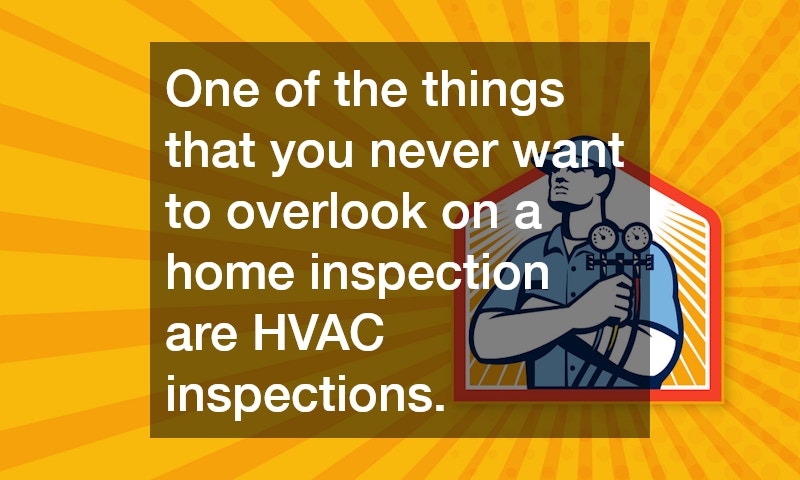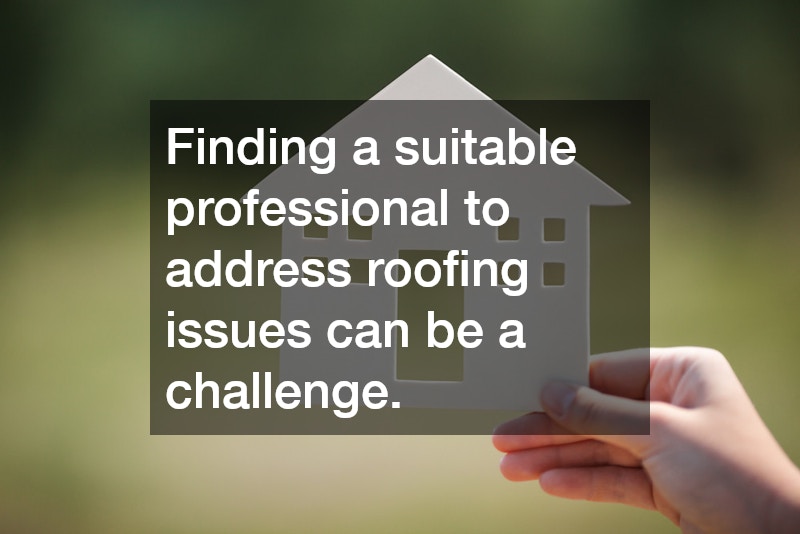Things to Check Off Your Basic Home Inspection List

One of the most exciting times for anyone is to find a house that meets the needs of you and your family, and you can see yourself living in the home and neighborhood. You have imagined how you would set up your living room, basement, bedroom, home office, and even the outdoor spaces. You think of the proximity of the residence to your kid’s schools and your job. Yet, with all the excitement, a sobering, yet responsible thing that you must do is to have a home inspection.
Having a good home inspection includes having your roof checked to protect your home and everything in it, and your foundation to make sure it hasn’t shifted or cracked. A basic home inspection also includes checking the plumbing for leaks and other issues, drainage to ensure that there is no standing water, and electrical to ensure there is enough power to use your use all your gadgets safely and efficiently.
However, one of the things that you never want to overlook on a home inspection are HVAC inspections. An HVAC inspector will check your heating and air conditioning services to ensure that the system is operating while clean and free of buildup due to dirt and dust. An HVAC inspection report will also reveal if your coolant levels and pressure are adequate, your ductwork is properly vented and installed, and your condenser and fan motor blades are clean and functioning as they should.

Reputable heating and air conditioning services have experienced HVAC inspectors who can provide this service for you in addition to inspecting electrical connections, air flow, thermostat calibration, and system switches.
Finding a suitable professional to address roofing issues can be a challenge. When wondering how to find the best local contractor to repair a leaky roof, it is essential to start by researching online reviews and seeking recommendations from neighbors or friends. Local contractors often have a reputation that reflects their quality of work and reliability. In the local area, there are several common roof repairs, such as shingle replacement, gutter repairs, and patching of small leaks.
A common issue in roofing is the need for flashing leak repair services. Flashing, the material that seals joints and edges on a roof, can deteriorate over time, leading to leaks. Identifying and addressing these problems promptly is crucial to preventing further damage. Another significant aspect of maintaining a roof is roof structure repair and maintenance, which involves inspecting and reinforcing the underlying framework to ensure long-term stability and performance.
For less extensive issues, experienced contractors can manage minor roof repairs quickly and easily. These might include fixing minor leaks, replacing damaged shingles, or resealing joints. Quick intervention in these cases can prevent minor problems from escalating into major repairs. Make the call today and see what roof repair and maintenance services are available for you!
There are several things to keep in mind when getting your home inspection. There are so many little things that it can be hard to keep track of everything you need to check off the list. However, instead of scrambling your brain, continue reading and learn the comprehensive collection of things you must do if you want to live in a safer and more reliable home.
What is a home inspection?
Understanding why a home inspection is necessary is the first thing you should cross of your list.
A home inspection is crucial. When you are buying a home, there can be a lot of unseen issues. Even if the home looks presentable and cozy on the outside, you never know what is lurking beneath the surface.
This can include cracks in the foundation, old plumbing, or life-threatening wiring.
If you have purchased the home, you probably won’t stumble upon these issues until it’s too late. However, this is the beauty of a home inspection. They are able to catch all of those flaws and life-threatening mistakes before they can even harm you. A home inspection gives you the opportunity to meet with a professional contractor. They will walk through the home and create a report that will outline all of the flaws within the home. These are the type of flaws that aren’t visible to the trained eye. The inspection can take anywhere from two to three days. This can depend on how large the house is.
When buying a home, this basic home inspection checklist also offers deeper insight into whether the house will need repairs or not. If there are severe problems, you can also request the seller fix these problems. They may also give you credit towards the home so that you can take care of these problems yourself before moving in.
A detailed report can also help you prepare when first moving in. You can prioritize the more important repairs before doing any cosmetic work. Make sure to cross this off your basic home inspection checklist!
How to find a quality inspector
Next, you will want to find a quality inspector to work for you and check off all the things on your basic home inspection checklist. There are several of them out there. Licensing requirements can vary from each state. This can impact their level of training. For instance, in Texas, contractors are required to demonstrate experience, complete training, and pass an exam. The state of Georgia, on the other hand, does not require contractors to be licensed. You can also check with the ASHI or the American Society of Home Inspectors. This is a trade organization that offers an online map of what is required by contractors depending on the state they are practicing in. Look on the map and cross this off your basic home inspection checklist.
Hiring your preferred home inspector
Meet with a handful of inspectors before hiring the perfect one for you. You don’t want to put all of your chips in one basket. When meeting with each candidate, ask them for a sample report. These reports can include valuable information like what kinds of comments they make when doing their inspection. This report will also let you know how thorough they are when doing their job. You don’t want them to leave any stones unturned when it comes to your new home.
Their reports should still be easy to read. A long report doesn’t necessarily mean they have done a good job. Ensure the information is easy to read and comprehend. If you have any questions about what they typically keep in their reports, make sure to ask!
You also want to choose your inspector early on in the process. Ensure you check this off your basic home inspection checklist and save yourself from the stress later.
You may want to ask them other questions. For example, ask what other services are available within the inspection. Does your inspector test for gas leaks? Do they use moisture meters to determine if the house has water damage? An ultrared camera can also detect electrical and plumbing problems, so it’s worth asking about whether or not they use these tools.
Additionally, ask if you are able to follow your contractor around while they work. Some may not feel too comfortable with this. However, other contractors will have no problem with it. They may actually enjoy your company. If they say no, this may raise some red flags that the contractor is not confident in their abilities.
You may also want to ask your inspector how long they will be at your home. If you want to tag along as they are making their assessment, it’s best if your schedules align.
When walking the grounds with your contractor, make sure to ask whether or not certain issues are normal or not. Water damage may not be out of the ordinary, but severely frayed wires can be a sign of something major!
Understanding the cost
Hiring a contractor is a cost you must invest in. However, you should still shop around your city for a contractor that fits into your budget. Some contractors can range from 350 to 600 dollars per session. This all depends on your home’s size and location. In big cities like Dallas, the contractors may charge you more for an inspection.
You should also budget in case your home needs a specialist. For example, if your inspector finds something wrong with your roof, you may need to hire someone who specializes in roof inspections.
Outline how much you’re willing to spend, so that you may cross this off your basic home inspection checklist.
Preparing for your home inspection
To ensure your home inspection runs smoothly, try to make a list of everything you want to be inspected before your contractor arrives. This basic home inspection list can include the following areas.
The roof
Shingles can easily fall and cause your roof to wear down over time. This can cause serious leaks! Avoid this and ask your inspector to take a close look at your roof.
The roof should also be repaired or replaced every 30 years, so this can help you determine whether or not you need a roof.
The foundation
The foundation can also crack. The house will become a hazard if these issues are not addressed and not crossed off of your basic home inspection checklist.
A cracked foundation can also lead to framing issues, so the home’s doors and windows will also be affected.
Cracked foundations can even affect the structural issues of the home and lead to leaking basement walls.
The attic
The attic is another place in the home your inspector should look over. An unhealthy attic can affect the air movement in your home. This process can raise your energy bills and make you pay more on your monthly energy bill.
The rain gutters
Ensure the rain gutters are also in order during your inspection. Having broken gutters can affect how the rain flow flows. You want the water to move away from the home and not towards it. If you don’t fix this simple issue, you can have mold and flooding issues on your hand as a brand new homeowner.
The plumbing
There are four main issues an inspector looks for when examining the plumbing system. For starters, they will make sure you don’t have any water heater problems. They will also make sure the main sewer line is not clogged, as this issue will make it difficult for water and waste to exit the home when the toilet is flushed.
Thirdly, they will check for galvanized pipes. They will also look for undetected leaks in the bathroom walls and perform permeability tests.
Other areas
Aside from these larger areas of the home, ensure your inspector is also checking these uncommon areas for imperfections, abnormalities, and hazard. You want to cross them off your basic home inspection checklist.
- the exterior stucco
- the light switches
- the power outlets
- the electrical panel
- the home’s appliances
- the plumbing features
- the thermostats
- the heating and cooling systems
- a water heater leak
This list is quite long, but you don’t want to muss anything when you’re considering buying a home. You also don’t want to discover these imperfections after purchasing the home. Bringing an inspector in the early stages can also help you determine whether the current owner of the property will have to reimburse you to fix these issues.
What’s not included in a home inspection
It may sound like a home inspection is comprehensive, but the reality is that there are many things a home inspection does not cover! Know which matters you’ll have to take into your own hands.
Trees and outdoor landscaping
You may have to walk around the grounds of the house yourself. Your inspector may not check this area of your home. If any issues arise, you can always hire a landscaper to trim the trees.
Swimming pool inspection
Swimming pools are typically left out of most inspections. Inspectors will typically overlook the electrical wiring of the home, so hire another source to look at your pool if you wish to get it inspected.
Mystery odors
If you’re smelling a foul odor coming from the house, it’s not an inspector’s role to look at and fix the issue. You may need to call an exterminator if an animal has died. This is usually the cause of the foul smell in the attic or basement.
Termite inspection
Likewise, termites are not an issue your contractor will address. You will need to contact an exterminator
Internet connection
Your inspector will not check your internet speeds either.
Sprinklers
This is another part of the outdoor landscaping area that your contractor will not check. You may want to check the sprinklers yourself upon purchasing the home.
Carpet
Carpets can also hide signs of damage and mold. Checking underneath is worth it, but not upon purchasing the home. Focus on the basic home inspection checklist — which includes more important matters like installing a surge mitigator.
Fixing the damage
When your contactor has outlines all of the home’s flaws, ensure you act fast. Start with the most alarming issues. For example, electrical problems can be lethal, so they will demand your attention first. Look into proper electrical system installation. If this sounds like an overwhelming process, as the seller of the home to make the repairs themselves.
You can also ask for credit towards the home’s closing cost or get cash for your home.
How to use a home inspection report
Once you have the report in your hands, you’re probably wondering — well what now? You’ve crossed everything from your basic home inspection checklist. If the list of problems in the report is far too long for you to deal with, consider opting out of purchasing the home.
It can be costly to repair and fix everything yourself and may not be worth it in the end.
Conclusion
It’s so important to get your home inspected before moving in. A proper home inspection ensures that your safety is prioritized. After all, there can be many imperfections, like cracks in the concrete, that you can’t immediately see upon moving in. Don’t be fooled by what seems like a perfectly-styled home!
Call up a contractor and make sure all of these things are crossed off your basic home inspection checklist.
More:
1 day home inspection, 1 year home inspection, 1 year home inspection checklist, 2019 home inspection checklist pdf, a complete home inspection, a complete inspection, a home inspection is supposed to be visual and, a narrative report is a type of inspection report that’s, airstream inspection checklist, alaska home inspection checklist, all inspect home inspections, all over home inspection, bad house inspection, binoculars for home inspection, can you get a mortgage without a home inspection, common home inspection findings, condo inspection checklist pdf, condo inspection checklist template, coop inspection cost, do home inspectors move furniture, do you need a home inspection to buy a house.












